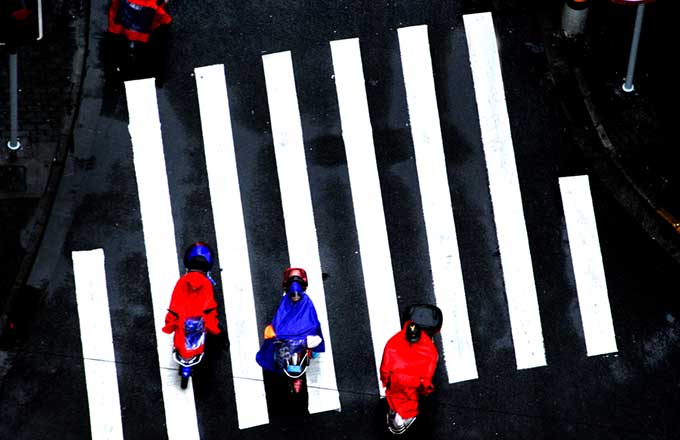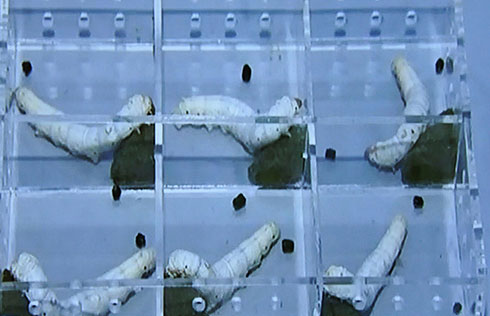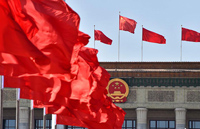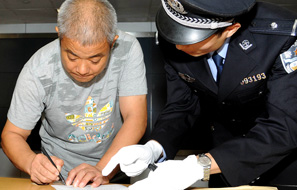'No wrongdoing shall be ignored' by Party
Supervisors being made to answer for the illegal acts of underlings to encourage a culture of responsibility
 |
|
Delegates to the Sixth Plenary Session of the 18th CPC Central Committee voted on Thursday in Beijing on two documents dealing with the discipline of the Party. [Photo/Xinhua] |
Township disciplinary secretary Wu Yongping was taken by surprise when he was summoned to a harshly worded talk by his supervisors at the county level.
Wu is a thirty-something aspiring cadre in Yangqiao Township in southwestern Guizhou province. The hourslong disciplinary talk was to inform him that a village-level official under his supervision embezzled 4,000 yuan ($590) in funds meant for sheep-raising last year. It was determined that Wu had failed to properly supervise and prevent the wrongdoing.
The stern reminder to Wu was part of a provincewide disciplinary campaign of the Communist Party of China that started this year. On an unprecedented large scale, the campaign is aimed at deterring Party disciplinary offenses and nipping them in the bud.
From January to September, more than 148,000 officials were subject to these disciplinary talks.
"The admonitions are aimed at keeping us focused on doing our jobs right and staying away from minor or major wrongdoings," said Wu.
During the campaign, more than 3,200 officials were punished, according to the Guizhou provincial CPC committee.
"No CPC member shall be left out of supervision. No wrongdoing shall be ignored and we shall do all we can to prevent a cadre from becoming corrupt," said Huang Wensheng, deputy secretary of the Guizhou Party disciplinary committee.
"Such talks are not only necessary, but key to ensuring day-to-day supervision," said An Zhifang, professor of public management at Guizhou University.
"Skirting around discipline has been common within the Party, and often few people bother to confront minor wrongdoings. But we should know that turning a blind eye to problems is equal to encouraging them. It is important to pre-empt before grave problems arise," he said.
Since the 18th CPC National Congress in 2012, the CPC has launched fierce anti-graft campaigns and reinforced the governance of the Party.
Provinces have been under pres-sure to regulate behavior of CPC members and officials.
"The governance of the CPC concerns the governance of the nation and the people's well-being," said Liu Zhexin, professor with China Executive Leadership Academy based in Shanghai.
"The ruling party is like a brain that should function well with the myriad cells of society.
"The public expects it to keep clean and shield itself from the erosion of graft. It needs a stringent system of rules to hold power in check. This is what the CPC is doing," said Liu.
At a gathering last week to commemorate the 80th anniversary of the success of the Long March, which cemented the victory of the Chinese revolution, Xi Jinping, general secretary of the CPC Central Committee, stressed strengthening the leadership of the Party and strictly governing the Party in order to achieve the nation's goals.
He pledged unswerving efforts to promote clean governance, fight corruption and strengthen the Party's ability to innovate as well as to purify and improve itself.
"Today, our 'Long March' is to realize the 'two centenary goals' and the Chinese dream of national rejuvenation," Xi said in the speech.
The two goals are building a moderately prosperous society in all respects by the time the CPC celebrates its centenary in 2021, and turning the nation into a modern socialist country that is prosperous, strong, democratic, culturally advanced and harmonious in time for the People's Republic of China to mark its centennial in 2049.


















